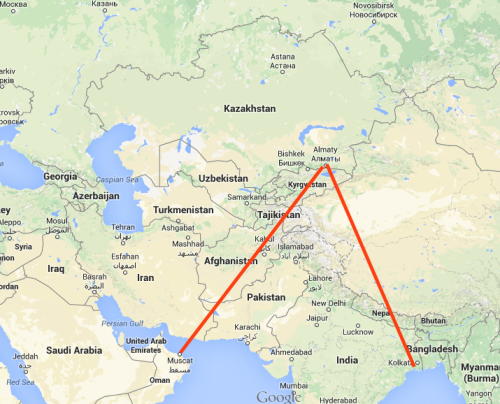Working on Global Journalist has made me more aware of everywhere in the world where journalism is suffering. Whether through the government or businesses or even the publications themselves, the world of journalism is going through a rough patch. A really rough patch. Will we get over it or will it get worse? Or will it get to a point where people simply don’t care?
Let’s look at a few examples.
1. Ethiopia.
Yes, the country is not the highest on any news editor’s radar, but if the second-most populous country of Africa has its independent journalists and bloggers fleeing its borders, that should raise multiple red flags (one for each person who flees would be a good start). And if they’re not fleeing, they are in jail. All the journalists prefer to censor themselves rather than speak out against the government.
And if you don’t have journalists who call the government out on its crackdown, the government will continue doing its own thing. And if the government does, what is to stop business owners from trying to silence journalists, too?
Take this story for example: Martin Schibbye is a freelance journalist in Sweden. He went to Ethiopia to cover the effects of oil fields exploration in the Ogaden desert. He ended up being ambushed, shot at, jailed and made to star in a “mockumentary.” Read more about the contention in Ogaden here.
Here is the show I helped produce on Ethiopia. Hear more about Schibbye’s story and what the media restrictions in Ethiopia mean.
2. Kazakhstan
Oh, Kazakhstan. I’ve taken an interest in you and what I have found has not surprised me in the least. Read some of it in my previous post here. I’ve learned more about the country’s media environment from talking to two journalism professors there, but more on that in another post. For now, here are some highlights:
– Libel laws favour the plaintiff (the person filing the lawsuit).
– Freedom of the press = write what you want, but be prepared to face the consequences.
– The state media (which is based on the Soviet model) is dominant.
Here is an example of when a business decided they didn’t like what the journalists were doing so they took the matter into their own hands.
It’s 2011. Some oil and gas company workers go on strike to demand higher pay and remove the restrictions on labour unions. Two journalists gather their information on the strike. They get assaulted by four men. Does anyone do anything? No.
Yes, it is an old example. But it is still reflective of what journalists have to deal with in Kazakhstan.
3. Good ol’ America.
Rolling Stone messed up. No, I don’t mean the band. I mean the magazine, which published a story on sexual assault on University of Virginia’s campus: “A Rape on Campus.” The story has since been redacted. So, how did they mess up? Columbia Journalism Review investigated the reporting process of the article. Highlights of their report, which can be read in full here:
1. Trusting the protagonist 100%.
2. The managing editor of Rolling Stone said, “Every single person at every level of this thing had opportunities to pull the strings a little harder, to question things a little more deeply, and that was not done.”
3. There was little independent reporting from the journalist in verifying information. (Thank you Mizzou, for drilling the importance of independent fact-checking.)
I have learned that the people who care most about press freedom and the process of reporting are journalists and human rights activists. There are very few people outside the world of journalism and activism who care. And that is unfortunate. Because if the people don’t care – or don’t tell the powers that be they care – the drive to do a job well will probably diminish. After all, what seems to sell more is sensationalism. And what better way to sell sensationalism than to dress up facts?

